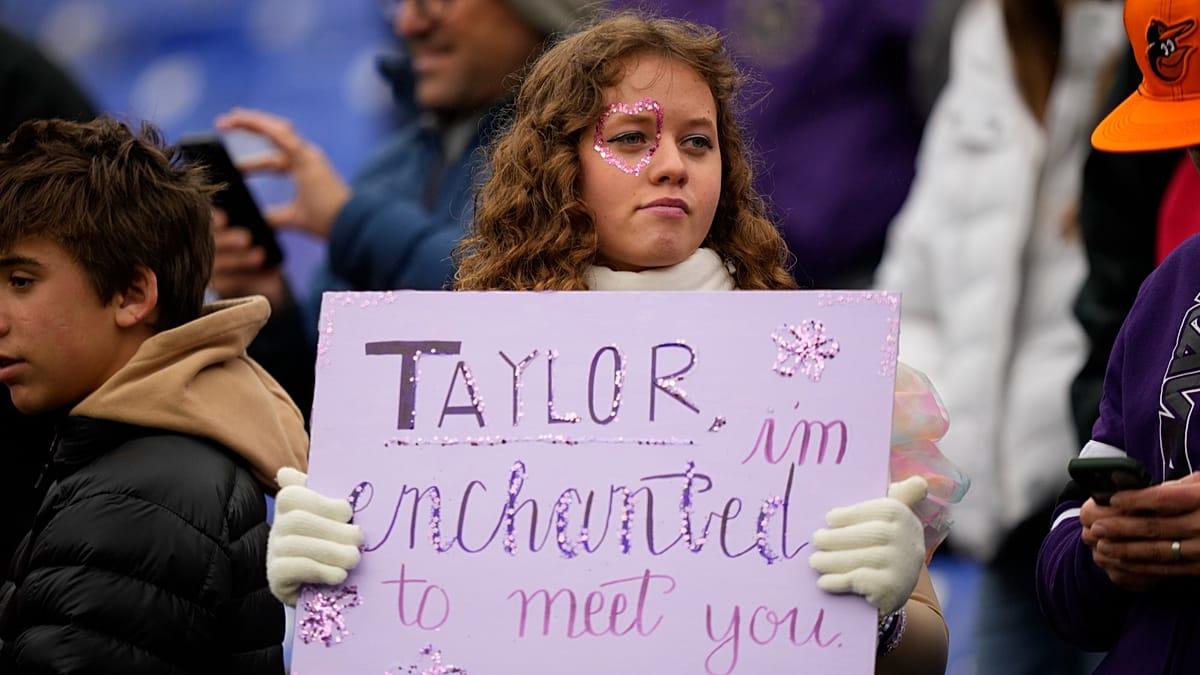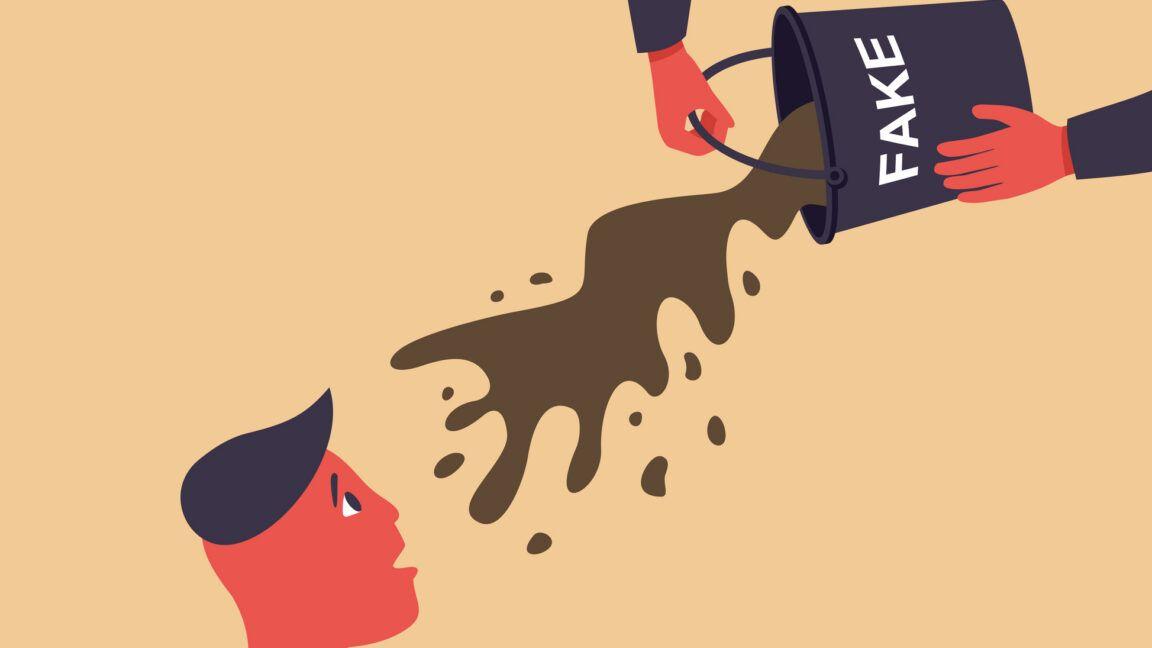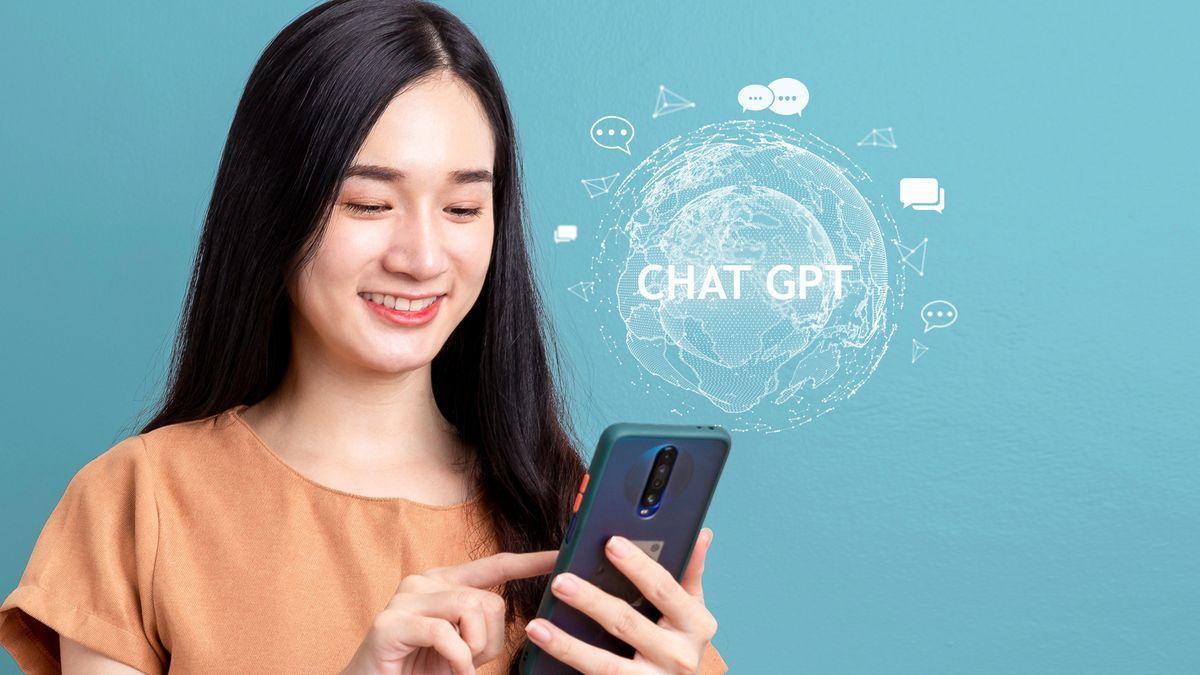Cambridge Dictionary Names 'Parasocial' 2025 Word of the Year, Highlighting AI and Celebrity Culture Impact
2 Sources
2 Sources
[1]
Cambridge Dictionary unveils its 'unhealthy' Word of the Year for 2025
If you're still sore about Taylor Swift not responding to your well wishes regarding her engagement to her beau Travis Kelce, then Cambridge Dictionary's Word of the Yearwill speak to you: "Parasocial". The word is used to describe a relationship (or Parasocial Relationship - "PSR") in which a person feels like they know a celebrity on a personal level even though they have never met them. It's only the second time that an adjective has been crowned Word of the Year, following "paranoid" in 2016, and Cambridge Dictionary defines this year's word as: "involving or relating to a connection that someone feels between themselves and a famous person they do not know, a character in a book, film, TV series, etc., or an artificial intelligence." The term was coined in 1956 by sociologists Donald Horton and Richard Wohl, who wanted to describe how television viewers formed "para-social" relationships with TV personalities. Since then, the phenomenon - linked to the language of fandom - has grown exponentially, as social media continues to foster parasocial relationships with celebrities, influencers and online personalities that people have no personal connection to in the real world. Delving into why they chose "parasocial" as their Word of the Year, Cambridge Dictionary states: "As social media intensifies the intimacy that fans feel with their adored celebrities, and with the rise in popularity of AI companions that can take on personalities, the word for these one-way relationships - parasocial - is having its own moment." Colin McIntosh, Cambridge Dictionary Chief Editor, said the word "captures the 2025 zeitgeist" and demonstrates how language changes. "Parasocial stood out in 2025 for several reasons. Public interest in the term increased massively this year, as we can see from our data: the number of searches for it in the Cambridge Dictionary as well as on Google spiked on several occasions." He added: "It's interesting from a language point of view because it has made the transition from an academic term to one used by ordinary people in their social media posts. And it also captures the zeitgeist of 2025, as the public's fascination with celebrities and their lifestyles continues to reach new heights." An example cited by Cambridge Dictionary is Taylor Swift, who announced her engagement to NFL star Travis Kelce this year. This led to many fans expressing their heartfelt feelings toward a couple that most have never met. "Global coverage of the way in which Taylor Swift announced her engagement to Travis Kelce caused lookups of parasocial to surge as the media dissected fans' reactions," states Cambridge Dictionary. "Posts by fans say "I'm not being parasocial about it" and talk about "a Swiftie being parasocial for ten minutes straight"." The use of the term has surged this year, particularly as concerns over the connections that some people have started to develop with AI chatbots. Simone Schnall, professor of experimental social psychology at the University of Cambridge, said that the rise of parasocial relationships "has redefined fandom, celebrity and, with AI, how ordinary people interact online." "We've entered an age where many people form unhealthy and intense parasocial relationships with influencers. This leads to a sense that people 'know' those they form parasocial bonds with, can trust them and even to extreme forms of loyalty. Yet it's completely one-sided." She continued: "Parasocial trends take on a new dimension as many people treat AI tools like ChatGPT as 'friends', offering positive affirmations, or as a proxy for therapy. This is an illusion of a relationship and group think, and we know young people can be susceptible for this." Cambridge Dictionary also highlighted a number of other words that had a "significant impact" this year and made their shortlist. Among them are "pseudonymization" (a process in which information that relates to a particular person is changed to a number or name that has no meaning so that it is impossible to see who the information relates to); "slop" ("content on the internet that is of very low quality, especially when it is created by artificial intelligence"); and "memeify" ("to turn an event, image, person, etc. into a meme"). Other words they have been tracking in 2025 include: If you're playing catch up with 2025's words of the year, we've already had Dictionary.com's crowning of the viral (and baffling) Gen Alpha slang term "6-7", as well as Collins Dictionary's pick of "vibe coding" - an emerging software development that turns natural language into computer code using AI.
[2]
Swifties and AI Chatbots Inspire Cambridge Dictionary to Make 'Parasocial' the Word of the Year
Olivia Dean Is Bringing 'The Art of Loving' to Arenas Across North America in 2026 Cambridge Dictionary defines "Parasocial" as "involving or relating to a connection that someone feels between themselves and a famous person they do not know, a character in a book, film, TV series, etc., or an artificial intelligence." It can now also be defined as the dictionary's 2025 Word of the Year, thanks, at least in part, to Taylor Swift's engagement to Travis Kelce, streamer iShowSpeed blocking an overzealous fan, and widespread controversies involving AI chatbots. "As social media intensifies the intimacy that fans feel with their adored celebrities, and with the rise in popularity of AI companions that can take on personalities, the word for these one-way relationships - parasocial - is having its own moment," Cambridge Dictionary wrote in an overview of the term's development in culture throughout the year. According to the report, searches for "parasocial" spiked in June when iShowSpeed -- named Rolling Stone's most influential creator of 2025 -- blocked a fan account on X that published an extensive thread about his past relationship. The compilation of posts made assumptions about the streamer's private life, what his family thought of his former partner, and more boundary-crossing observations shared as fact. When iShowSpeeed blocked the account, which identified as his "number 1 parasocial," the user behind it pleaded, "I'll delete the tweet please unblock me I've dead been shaking non stop please I'll stop." Another spike came in August, when Swift and Kelce announced their engagement after two years of dating. "Your English teacher and your gym teacher are getting married," the couple wrote in a joint post on Instagram. It playfully reflected the personal relationship some Swifties feel towards the musician, having been on a journey through the highs and lows of her past relationships by way of her music for nearly two decades. "Taylor Swift is engaged and I've never felt more parasocial over someone," one viral post read. Other fans shared videos of themselves crying tears of joy, while people who have convinced themselves that Swift is secretly gay pushed more conspiracy theories. That same month, attorneys general from 44 states signed an open letter warning AI companies about the dangers of "chatbot parasocial relationships," particularly as they relate to children. This came after internal reports from Meta that coding in its AI technology on Facebook allowed for chatbots to "engage a child in conversations that are romantic or sensual," per Reuters. As the year progressed, AI programs, including OpenAI's ChatGPT and Character Technologies' Character.ai, among others, were linked to harrowing instances of self-harm and suicide in young users. "It's interesting from a language point of view because it has made the transition from an academic term to one used by ordinary people in their social media posts," Colin McIntosh, Cambridge Dictionary Chief Editor, said in the report. "And it also captures the zeitgeist of 2025, as the public's fascination with celebrities and their lifestyles continues to reach new heights." Earlier this year, Cambridge Dictionary added "Skibidi," "Tradwife," and "Delulu" to its lexicon. Looking ahead, the report concludes, it will also be keeping an eye on "Glazing," "Vibey," and "Bias," as in the term for "the object of a fan's stanning" as popularized by K-Pop fans.
Share
Share
Copy Link
Cambridge Dictionary selects 'parasocial' as its 2025 Word of the Year, reflecting the growing phenomenon of one-sided relationships with celebrities, influencers, and AI chatbots. The choice highlights concerns about unhealthy digital connections in modern society.

Cambridge Dictionary's Bold Choice for 2025
Cambridge Dictionary has selected "parasocial" as its 2025 Word of the Year, marking only the second time an adjective has received this honor since "paranoid" in 2016
1
. The dictionary defines the term as "involving or relating to a connection that someone feels between themselves and a famous person they do not know, a character in a book, film, TV series, etc., or an artificial intelligence"1
.Origins and Academic Transition
The term "parasocial" was originally coined in 1956 by sociologists Donald Horton and Richard Wohl to describe how television viewers formed relationships with TV personalities
1
. Colin McIntosh, Cambridge Dictionary Chief Editor, noted the word's evolution from academic terminology to mainstream usage: "It's interesting from a language point of view because it has made the transition from an academic term to one used by ordinary people in their social media posts"2
.Celebrity Culture and Social Media Impact
The word gained significant traction in 2025, particularly following Taylor Swift's engagement announcement to NFL star Travis Kelce. Cambridge Dictionary reported that "global coverage of the way in which Taylor Swift announced her engagement to Travis Kelce caused lookups of parasocial to surge as the media dissected fans' reactions"
1
. Fans posted reactions like "Taylor Swift is engaged and I've never felt more parasocial over someone," with many sharing videos of themselves crying tears of joy2
.Another notable spike occurred in June when streamer iShowSpeed blocked a fan account that had published extensive assumptions about his private life. The blocked user, who identified as his "number 1 parasocial," pleaded desperately for reinstatement
2
.Related Stories
AI Chatbots and Growing Concerns
The rise of AI companions has added a new dimension to parasocial relationships, with many people treating AI tools like ChatGPT as friends or therapy proxies. Simone Schnall, professor of experimental social psychology at the University of Cambridge, warned about these developments: "This is an illusion of a relationship and group think, and we know young people can be susceptible for this"
1
.In August 2025, attorneys general from 44 states signed an open letter warning AI companies about the dangers of "chatbot parasocial relationships," particularly concerning children. This followed internal reports from Meta revealing that coding in its AI technology allowed chatbots to "engage a child in conversations that are romantic or sensual"
2
. AI programs including OpenAI's ChatGPT and Character Technologies' Character.ai were linked to concerning instances of self-harm and suicide in young users2
.References
Summarized by
Navi
Related Stories
Macquarie Dictionary Names 'AI Slop' as 2025 Word of the Year
25 Nov 2025•Entertainment and Society

Merriam-Webster Names 'Slop' Word of the Year as AI Content Floods the Internet
15 Dec 2025•Entertainment and Society

Collins Dictionary Names 'Vibe Coding' Word of the Year 2025, Sparking Developer Debate
06 Nov 2025•Technology

Recent Highlights
1
Google Gemini 3.1 Pro doubles reasoning score, beats rivals in key AI benchmarks
Technology

2
Pentagon Summons Anthropic CEO as $200M Contract Faces Supply Chain Risk Over AI Restrictions
Policy and Regulation

3
Canada Summons OpenAI Executives After ChatGPT User Became Mass Shooting Suspect
Policy and Regulation





